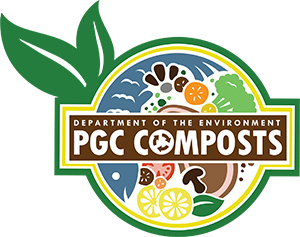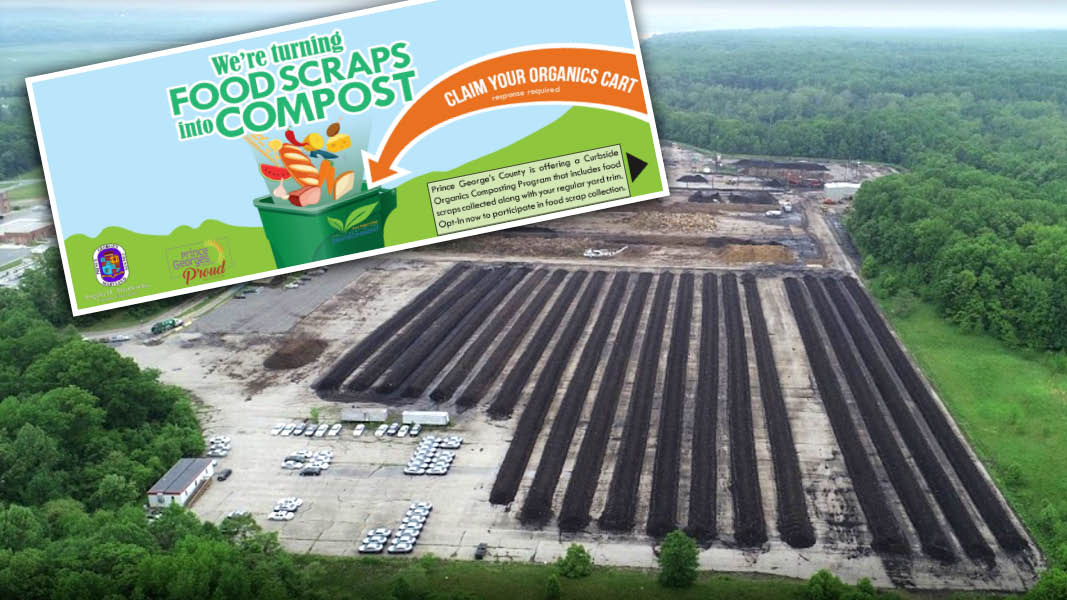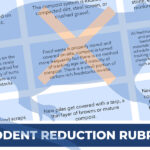Top: Aerial view of Prince George’s County (Maryland) Organics Compost Facility.

Prince George’s County curbside food scraps collection program logo.
At the end of April, we reported that the Maryland General Assembly passed HB 264, which requires entities — including supermarkets, schools and institutions, and food establishments — that generate more than two tons/week of food residuals to divert that material from disposal, starting on January 1, 2023. Maryland Gov. Larry Hogan had to sign or veto HB 264 within 30 days of its delivery, or the bill would become law automatically. On May 28, the bill became law, without Gov. Hogan’s signature. Under HB264, “Organics Recycling — Waste and Diversion,” commercial generators over the 2 tons/week threshold have to either reduce their food waste, divert to food rescue organizations and/or farms for animal feed operations, or compost or anaerobically digest the residuals. In 2024, the threshold lowers to generators of 1 ton/week or more.
The food residual diversion requirements only apply if the food waste is generated “at a location that is within a 30-mile radius of an organics recycling facility that has the capacity to, is willing to, accept and process all of the person’s food residuals for recycling, and is willing to enter into a contract to accept and process the person’s food residuals,” states HB 264. Maryland currently has 22 permitted compost facilities, with 20 facilities in operation, including the Prince George’s County Compost Facility, which serves the DC-Metro area, according to the Maryland Department of Environment. Out of the 20 facilities, 14 compost only yard trimmings, five compost a combination of food scraps, yard trimmings, manure etc., and one composts hay, straw, and manure.
Another bill passed by the Maryland General Assembly in April, HB 0248, also automatically became law in May. Titled “Condominiums and Homeowners Associations — Rights and Restrictions — Composting,” the law prevents condominiums and homeowners associations from “prohibiting or unreasonably restricting a unit owner from contracting with a private entity to collect organic waste materials for composting, and prohibiting or unreasonably restricting a lot owner from composting organic waste materials for the lot owner’s personal or household use as long as the lot owner owns or has the right to exclusive use of the composting area; etc.” This legislation helps enable residents to utilize a private subscription service for collection of their food scraps, or to compost at home. It becomes effective in October 2021.










